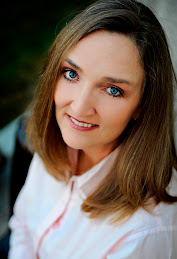VANCOUVER — A woman born as a result of donor insemination has won her legal battle seeking to end anonymity for sperm and egg donors in British Columbia.
Olivia Pratten was born in 1982 as a result of donor insemination.
After fruitless efforts to obtain records about the sperm donor, Pratten launched the lawsuit against the provincial government, arguing that the province's adoption laws discriminated against donor offspring like herself because they don't allow them the same ability to learn their genetic roots as adopted children.
In a ruling released Thursday, B.C. Supreme Court Judge Elaine Adair agreed.
Anonymous donation, she wrote, "is harmful to the child, and it is not in the best interests of donor offspring," Adair wrote in her ruling, which found sections of the B.C. Adoption Act and Adoption Regulations unconstitutional.
The law was revised in 1996 to allow adopted children the right to information about their biological parents, but it does not include children born of reproductive donations.
Adoptive children and donor offspring are similar in their need to know and have a connection to their biological roots, the judge said.
The ruling gives the B.C. government 15 months to amend the law to address donor offspring and grants a permanent injunction against the destruction of donor records in the province.
"I'm thrilled," Pratten said from Toronto. "It's finally validation of what people like myself have been saying for years."
The decision won't help Pratten to find out the identity of the donor whose sperm allowed her parents to conceive.
But the 29-year-old journalist, who works for The Canadian Press, said that's not why she pursued the long legal battle.
"I've always known that my records were probably destroyed. It was more about changing the policies going forward," she said.
"It was never just about me. It was about helping other people and using my situation, that was a negative, and turning it into a positive so no one else would have to experience having their records destroyed.
"I felt a responsibility to be public with this."
Pratten had the support of her mom and dad, who accompanied her to court every day for the hearings last fall.
"I'm not related to my dad but he's my dad," she said. "This is a victory for them as well because finally what they were saying 20 years ago has been heard and recognized as being accurate."
Pratten's lawyer, Joseph Arvay, said the end result of the decision is that anonymous egg and sperm donation will no longer be permitted in B.C.
"This case represents a monumental victory for our client, Olivia Pratten, and all the donor offspring she represents who have for too long been disadvantaged by their exclusion from the legislative landscape which has promoted and perpetuated prejudice and stereotyping and caused them grave harm," he said in a statement.
The ruling has no weight outside the province, but Pratten said she has been contacted by other donor offspring who have declared their intention to pursue similar legal action to force change elsewhere.
The Attorney General of B.C., the defendant in the case, had no immediate comment on the ruling.
"The court just delivered the decision today on this very complex matter. We will need time to carefully study the decision, decide what its implications are and what the next steps should be, including whether we will appeal," said a statement from the
Lawyers for the government argued that practices have changed significantly since Pratten was born. Today, a woman seeking donor insemination in B.C. can get detailed social and medical information on the donor even if the donation is anonymous.
There is simply no constitutional right, the government argued, for a person to know their origins or genetic heritage while there is a constitutionally protected right to privacy.
The judge noted that anonymous donation remains the choice of many would-be parents who want control over what their child knows, when they know and who might be involved in their child's life.
"But, based on the evidence in this case, I have concluded that anonymity is not in the child’s best interests," Adair wrote.
"Strong and positive relationships with social parents do not satisfy or eliminate the desire and need of donor offspring to know where they came from, and their need to know their origins is just as powerful and real as those of adoptees."




